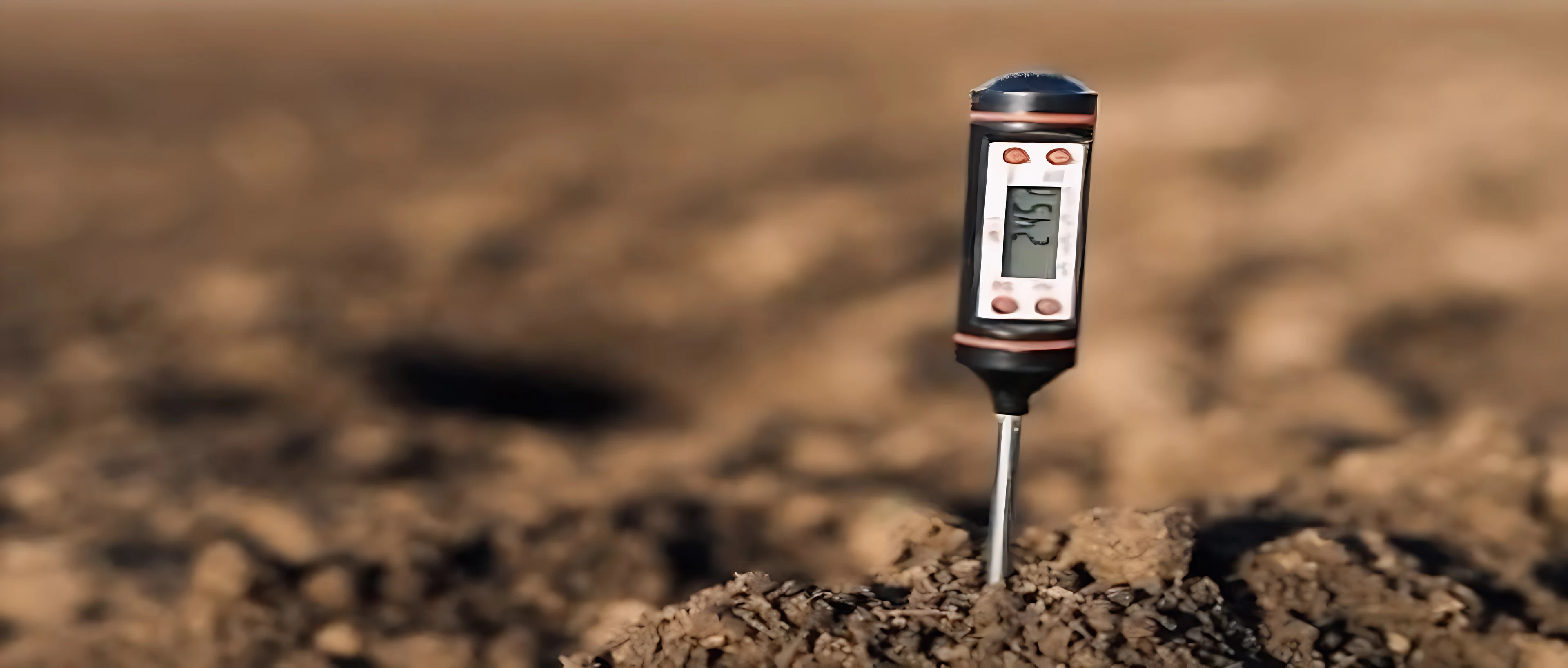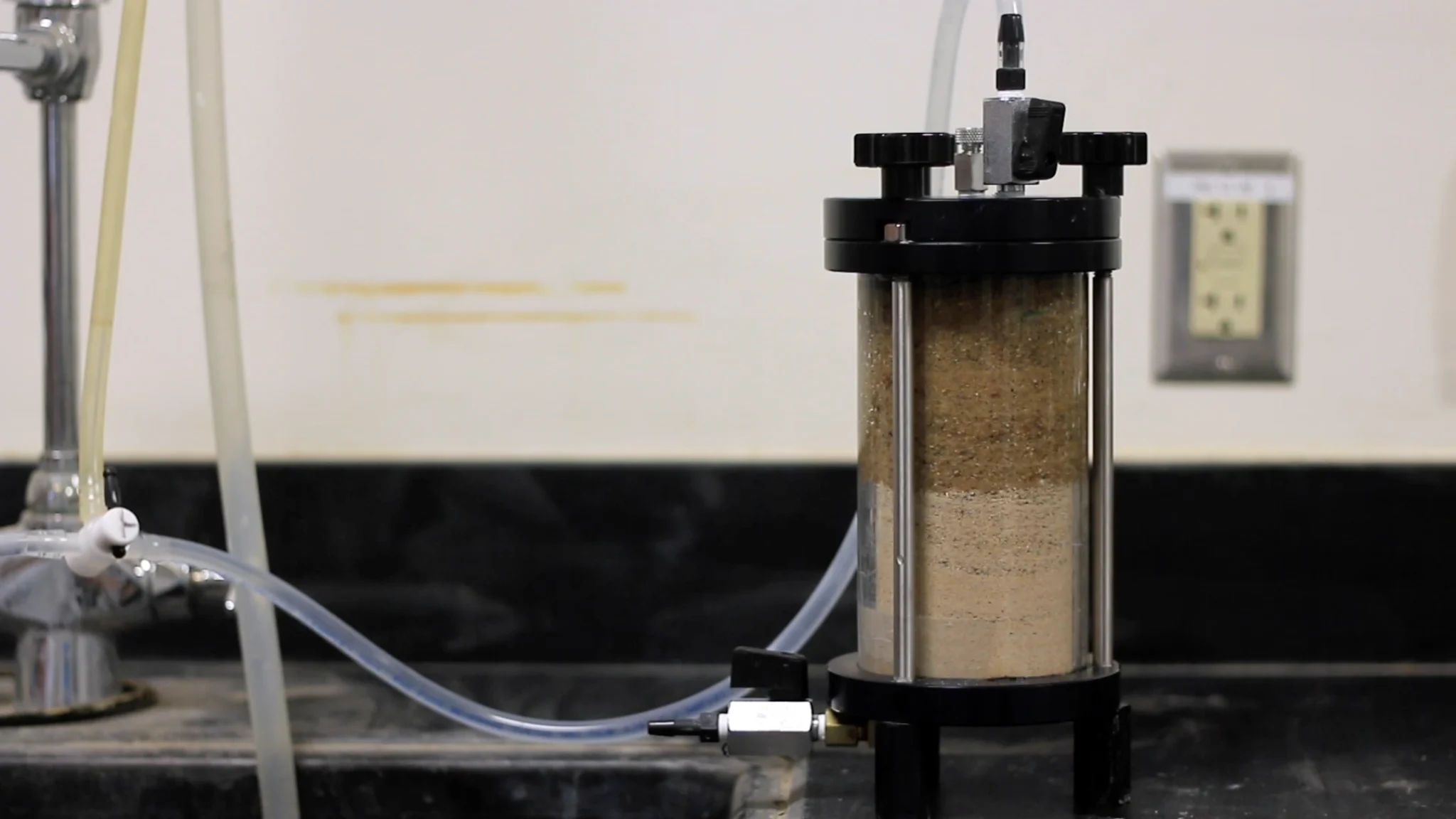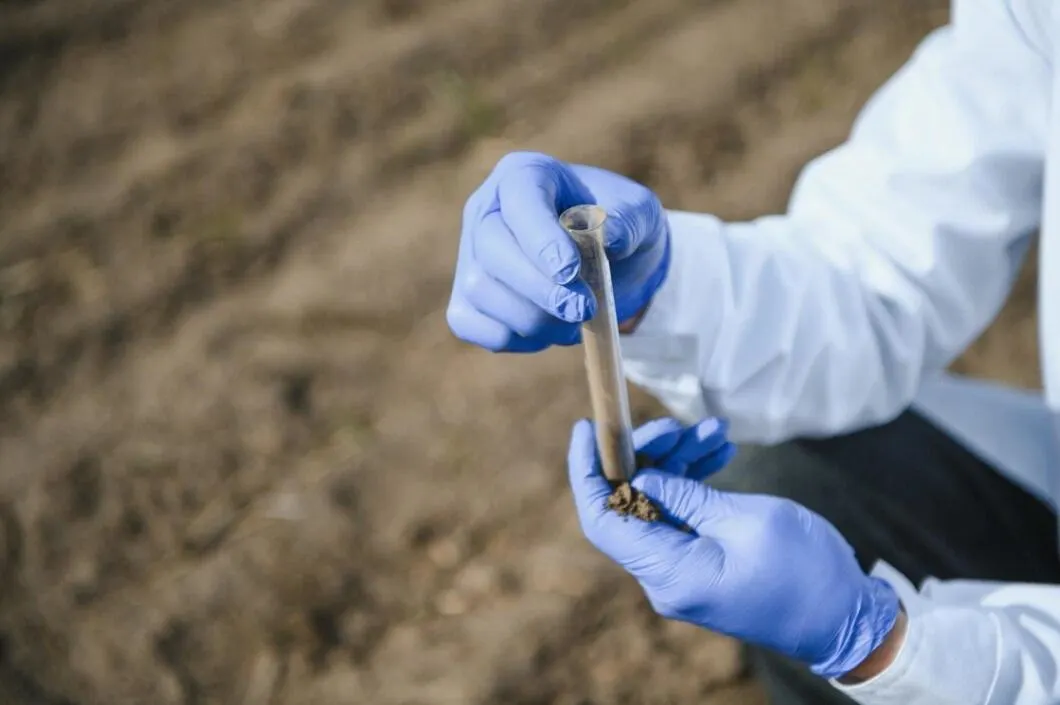Permeability Testing

Permeability Test – Understanding How Soil Handles Water
Every construction project starts with the ground beneath our feet. But soil is not just “dirt” — it’s a living system that decides whether your foundation stays strong or fails under pressure. One of the most important things engineers need to know is how easily water can move through soil. That’s where the soil permeability test (or permeability field test) comes in. At Falcon Laboratory UAE, we help answer that crucial question before you start building. Our field tests reveal how soil reacts to water, giving engineers, contractors, and developers the insights they need to design safer, stronger, and more sustainable structures.
So, what is Soil Permeability?
Think of soil as a sponge. Some sponges absorb water quickly and let it drain fast, while others hold onto it and barely let a drop escape. Soil works the same way.
- Sandy soils: like a sponge with big holes — water drains quickly.
- Clay soils: like a dense sponge — water barely moves through.
- Mixed soils: somewhere in between.
In engineering terms, soil permeability is simply the speed at which water flows through soil pores.
Why Should You Care About Permeability?
Because water is one of the biggest threats to any structure. Imagine a foundation where water seeps in constantly — it could weaken over time. Picture a dam without proper seepage control — it could fail disastrously. Think of roads built on poorly drained soil cracks and potholes would show up in no time. That’s why a permeability field test is not just a box to tick. It’s insurance for your project’s safety and performance.
Here’s what it helps with:
✔ Planning good drainage and irrigation for farms
✔ Building safe dams and embankments
✔ Making sure that roads and sidewalks have good drainage
✔ preserving the environment in landfills
✔ Controlling groundwater near basements and tunnels
In short: If your project touches soil, you need to know its permeability. Field Testing vs. Lab Testing, You might ask: “Can’t we just test soil samples in the lab?” Yes, and we often do. But there’s a catch: When you remove soil and take it to a lab, its natural structure may change. In the field permeability test, we check the soil where it actually exists, under real conditions. That means the results are often more accurate and reliable for design purposes.

How Do We Actually Test Soil Permeability in the Field?
If you’re thinking, “Okay, but how do you check if the soil lets water through?” let us show you step by step. Here’s the scenario during a permeability field test at Falcon Lab. We like to keep things clear and easy to understand. Find out what the water will do where you are.
- Choosing the Right Spot
Before we start, our engineers look at your site plans and soil conditions to decide where to test. We usually pick spots near foundations, boreholes, or areas where water flow really matters.
Think of it as checking the most “at-risk” zones first.
- Preparing the Ground
Once we’ve found a good place, we dig a hole, or borehole, in the ground. It is like providing the earth a “window” so we can see how the water moves. It could be relatively shallow (for roads or modest buildings) or very deep (for passageways, dams, or tall skyscrapers). It depends upon the job.
- Setting Up the Equipment
Different tests need different setups:
- For a small auger hole, we need some simple measuring tools and water.
- For a pumping test, we set up pumps and water-level sensors.
- For a packer test in rock, we use inflatable packers that seal off a section of the borehole.
Don’t worry — we bring all the gear.
- Adding (or Removing) Water
Now comes the fun part: we watch how the soil deals with water.
- In sandy soils, water rushes through quickly, so we keep a constant water level and measure how much flows out. In clayey soils, water seeps slowly, so we use a falling head method — letting the water level drop naturally and recording how long it takes. In aquifer or large projects, we might pump water out of a well and watch how the groundwater reacts nearby. It’s a bit like running a science experiment right there on the construction site.
- Watching Closely
It takes time for this part. Sometimes we measure for minutes, occasionally for hours, and on big jobs even for days. Changes in the water level, no matter how small, can tell humans a lot about the way the dirt will behave in real life.
- Crunching the Numbers
Once the readings are done, our engineers run the calculations (yes, there’s a bit of math behind it). The result is what we call the hydraulic conductivity — basically the official “speed limit” for how fast water can move through that soil.
- Turning Data into Action
Finally, we put everything into a report that’s clear and practical. Instead of overwhelming you with just raw data, we explain what it means for your project.
For example:
- Does the foundation need special waterproofing?
- Will you need dewatering systems before excavation?
- Is the soil good enough for drainage as it is?
It is where our clients really appreciate Falcon Lab — we don’t just hand over numbers, we give solutions.
Why This Matters for You
Following this careful procedure means:
- You don’t get nasty surprises from groundwater during construction.
- Engineers can design smarter, safer, and more cost-efficient foundations and drainage systems.
- Your project is better protected against long-term water damage.
In short: a well-done permeability test is like a safety check for your soil — and at Falcon Lab, we make sure it’s done right the first time.

What Affects Permeability Test Results?
Just like baking a cake depends on ingredients and oven temperature, permeability depends on several conditions:
- Soil type (sand vs. clay)
- Water table depth
- Compaction and layering of soil
- Organic matter (roots, humus)
- Pressure of the overlying soil
At Falcon Lab, we don’t just give you numbers — we interpret them so you understand what they mean for your project.
Real-World Applications
- Foundations: preventing water from making buildings weaker.
- Highways and airports: stopping failures in the ground below.
- Basements and tunnels: Making systems for waterproofing and drainage.
- Dams and canals: keeping seepage under control and making sure it’s safe.
- Landfills: Keeping toxic liquids from leaking into the ground.
- Farms and irrigation: making sure there is enough water and drainage.
What Does the Process Look Like?
A typical permeability field test goes something like this:
- We arrive at the site and prepare boreholes or test pits.
- We set up pumps, packers, or water filling systems depending on the test type.
- Water is either added or extracted while we carefully measure changes.
- Data is logged at regular intervals.
- We run calculations to find the soil’s hydraulic conductivity (that’s the technical term for permeability).
- Finally, you receive a clear, easy-to-read report with recommendations.
Falcon Lab’s Advantage
Falcon Lab’s Advantage
So, why trust Falcon Lab for your permeability field tests?
- Experience you can count on – decades of geotechnical testing in the UAE.
- Modern equipment – for accurate and efficient results.
- Easy-to-understand reports – no jargon, just useful insights.
- Compliance with international standards – ASTM, BS, AASHTO, ISO.
- Partnership approach – we work closely with your engineers and project managers.
Our mission is simple: to give you data you can trust, and solutions you can build on.
Why This Matters for the UAE
You have to do permeability tests here in the UAE because of the fast-paced construction, the coastline, and the complicated soil profiles. Falcon Lab backs projects that affect the future of our cities. These include high-rise buildings in Dubai, road networks in Abu Dhabi, and environmental projects all over the Emirates.
Final Thoughts, When you get right down to it, the permeability field test is all about safety, reliability, and smart engineering. We learn how soil and water work together, which keeps houses safe, saves money, and even protects the environment. We at Falcon Laboratory UAE use our knowledge, technology, and enthusiasm to provide trustworthy soil testing services. We make sure that your project has a strong and reliable base, no matter if you’re building up, digging down, or going across the land.
Looking for trusted soil permeability test services in the UAE? Contact Falcon Lab today, and let’s build with confidence.
QUICK CONTACT
OUR SERVICES
ASK AN EXPERT TO CONTACT YOU
Let's begin by talking....
If you’re searching for geophysical surveying, geophysical services, or geophysical consulting services in the UAE, Falcon Laboratory is ready to help.
ABU DHABI LOCATION
Falcon Laboratory LLC
Store No 1, Plot No 08, Mussafah 32/1,
P.O. Box: 113765,
Abu Dhabi, United Arab Emirates
- 24°21'10.2"N 54°30'45.8"E
DUBAI LOCATION
Falcon Laboratory LLC
Near Dubai Municipality Nursery
Al Warsan Third,
P.O. Box: 231494,
Dubai, United Arab Emirates
- 25°09'27.9"N 55°27'42.6"E
SHARJAH LOCATION
Falcon Laboratory LLC
Al Oufouk B Block, Shop No : 02
Industrial Area 17,
Maleha Road Back Side
Post Box: 71713
Sharjah, United Arab Emirates
- 25°17'13.1"N 55°26'44.7"E
